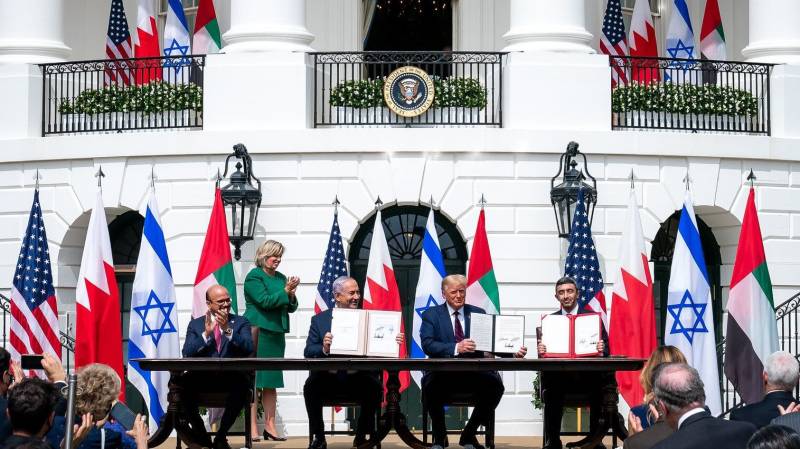
It has been a goal for Israel to normalise relations with the Arab world. The relations between Israel and the Arab world deteriorated during World War 1 when the Balfour Declaration was brought about by the British Government to gain the support of Jews in WW1. The Declaration promised a separate Jewish homeland for Jews in Palestine. The reaction of Arabs after the Declaration was furious. Since then they have been each other’s nemesis although recent developments started the normalisation of relations between different Arab Countries and Israel.
The UAE and Bahrain normalised their relations in 2020. Before that Egypt and Morocco also built relations with Israel. But now there is a major development in the relations between the Arab world and Israel. Saudi Arabia is the birthplace of Islam and home to two of the most sacred Muslim cities in the world- Mecca and Medina and is beginning to recognise some form of relationship with the State of Israel. It has always been a goal for Israel to build as much relations with the Arab World as they can.
The US is also trying its best to bring the two countries on the same page but faces many obstacles under the current administration. For the US any success in establishing a relationship between the two will be a geopolitical and geo-economic win for the US.
The Biden administration is trying hard to make this happen because if the US does not succeed, on the international level China may step forward to make this deal happen. China also built its soft image in the international arena by normalising relations between Iran and Saudis in March 2023.
Not only did Saudi Arabia normalise its relations with its staunch rival Iran in March of this year but also warmly welcomed President of Syria Bashar al-Assad back in the Arab League.
It would not be a big deal for Saudis to normalize relations with another arch-foe. As the goal for Saudi Arabia is to play a central role in the global economy, it has to work with the regional states. Saudi Arabia is an active member of the G20 Summit and is also invited to be a member of BRICS+.
It is imperative to note that due to the growing competition between the Saudis and UAE for economic dominancy in the Arabian Peninsula, Riyadh will not allow the UAE to monopolise its supremacy in the region by having friendly relations with Israel.
The conditions Riyadh put included a US defense Pact which includes fewer restrictions to arms sold to them and also asked for help in the development of civilian nuclear program. The deal would also require the establishment of a Palestinian state or make developments in the Two-State Solution.
UAE while developing its relations with Israel got a suspension of annexation. At least Saudi Arabia should ask for a state solution and the removal of illegal outposts and settlements and promise a permanent settlement for Palestinians. In the case of mere promises and minor concessions, the Palestinians may find themselves in a plight like after the Abraham Accords which gave no concession to the Palestinians. Israel will keep its control of the West Bank and other areas that were taken over by Israel.
Although it will not happen in the short term the deal with Saudi will have major incentives in the form of political, economic, and security leverages. There are many problems ahead to lock this deal because the major stakeholder that is not on the negotiation table is Palestine.

